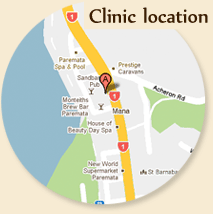Orthopaedic Surgery questions you may have
Introduction
These are answers related to commonly asked orthopaedic questions from our patients. We do update this information from time to time.
-
General frequently asked questions
What is an MRI?
"MRI" is short for Magnetic Resonance Imaging. This test is different from an x-ray because it makes a picture of your body's organs, tissues, and bones without exposing you to radiation. An MRI uses a powerful magnetic field and a radio frequency-type energy that produces two and three dimensional computerised images.What is a CT guided injection?
This is a form of treatment for relieving chronic back, neck, arm, leg and hip pain. It involves spinal injections being placed using advanced imaging technology, the 64-slice computed tomography (CT) scanner, can benefit these patients.Injections are typically placed using fluoroscopic guidance. The 64-slice CT scanner offers advantages compared to fluoroscopy. CT creates detailed images of nerves, muscles and bones, allowing neuroradiologists to evaluate these areas as potential sources of a patient's pain and to precisely place needles at the affected nerves. This reduces risk of additional pain and increases safety by avoiding arteries and veins.
Studies have shown that CT-guided spinal injections are an accurate and precise approach for treatment of back pain. Depending on a patient's condition, pain relief lasts from weeks to months or longer. In some cases, injections completely resolve pain, allowing patients to avoid surgery. Injections also may be used to manage a patient's pain while he or she waits for surgery or begins physical therapy. A patient's response to injections can be indicative of response to surgery, providing valuable information for both patient and physician.
What is an Ultrasound?
Ultrasound is a procedure that uses high-frequency sound waves to view internal organs and produce images of the human body.Should I continue taking medication prior to surgery?
Yes, unless you are specifically instructed not to by your surgeon.If you take Asprin, please stop consumption one week prior to surgery. Medication should be taken with a sip of water only the day before surgery.
Please call us if you have any queries.
What happens to my clothes and jewellery?
Hospital staff will keep your clothes in a secure environment. Any valuables should be left with friends or family. -
Foot and Ankle General FAQ
Plaster casts
Designed to keep the foot or ankle in a certain position, or to protect the site of operation while it heals.Fiberglass casts
Lighter and cooler. The covering (fiberglass) on synthetic casts is water-resistant, but the padding underneath is not. You can, however, get a waterproof liner. The doctor putting on your child's cast will decide whether a fiberglass cast with a waterproof lining is appropriate.Splints
Splints are generally applied to decrease movement to provide support and comfort through stabilization of an injury. The primary purpose of a splint is as a temporary bridge for non-emergent injuries to bones until definitive casting can be performed by a consultant, such as an orthopaedic surgeon.What are Moon Boots?
Designed specifically as stabilizers for ankle injuries, moon boots promote compression around the fracture which helps reduce swelling whilst supporting the leg. Both of these factors promote healing. The sole of the boot is designed as a rocker, with a non-slip sole, which helps the patient’s natural walking style.Can I take off my moon boots to sleep?
Moon boots help restrict movement of an injured ankle, which aids healing. It is recommended you talk to your orthopaedic surgeon before taking them off.Can I wear my moon boots in the bath?
Moon boots are not waterproof. Do not wear them in the bath.How long will I have to wear it?
This will depend on the extent of your injury. Your orthopaedic surgeon will advise you of this.Can I drive with it on?
We strongly recommend that you do not drive with a moon boot on. If you have any concerns please talk to us. -
Hip Replacement Surgery FAQ
How long will I be in hospital?
You will need to stay in hospital for 1 - 3 days following surgery, or until your surgeon has determined that you have recovered sufficiently.How long is my recovery?
You will need to be on crutches or use a walker for approximately six weeks. You must not drive during this period, nor should you travel by air.Short term recovery is 4 – 6 weeks. Signals of short term recovery is when a patient no longer requires walking aids and can walk around the house without pain. You will also be able to walk two blocks around the house without pain or resting.
Long term recovery is approximately 6 months. This involves the complete healing of surgical wounds and internal soft tissues. It also means a patient can return to work and the activities of daily living.
What do you do?
See information on our hip replacement procedure. -
Ankle Replacement Surgery FAQ
How long will I be in hospital?
You will need to stay in hospital for 1 - 3 days following surgery, or until your surgeon has determined that you have recovered sufficiently.How long is my recovery?
After surgery, some patients may be permitted to walk if the surgeon feels this is appropriate. The cast often remains on for a month and the patient will then work with a physiotherapist to improve mobility and start to partially weight bear. It will take between three and six months for joint discomfort to settle down and for joint movement to return.Six months post surgery you should have normal joint mobility and be able to resume normal daily activities, such as walking, driving, gardening and other simple low impact leisure activities. Activities such as tennis and heavy hiking are not recommended. It can take more than a year before you are fully recovered and the ankle replacement surgery can be completely evaluated.
What do you do?
See information on our ankle replacement procedure. -
Knee Replacement surgery FAQ
How long will I be in hospital?
You will need to stay in hospital for 1 - 3 days following surgery, or until your surgeon has determined that you have recovered sufficiently.How long is my recovery?
By the time patients are discharged, they should be able to get in and out of bed and walk to the bathroom. You may need to use crutches or a walking stick for up to six weeks following surgery.Most patients are around 80% recovered by six weeks after surgery, at which time you should be able to return to work. However, this will depend on your occupation. Your knee will continue to improve more gradually over the next three to six months. Recovery varies from person to person depending on their level of pain and activity before their surgery.
Patients should see complete restoration of their leg within six to 12 months if they follow the physical therapy regimen and do not reinjure the knee by doing certain activities too soon after surgery.What do you do?
See information on our knee replacement procedure.
We cannot answer specific questions via this website, instead we encourage you to ask your GP to make a referral to our orthopaedic surgeon Mr Nigel Willis.



